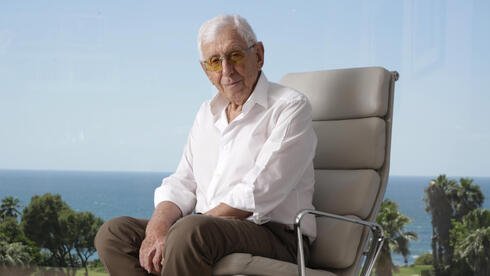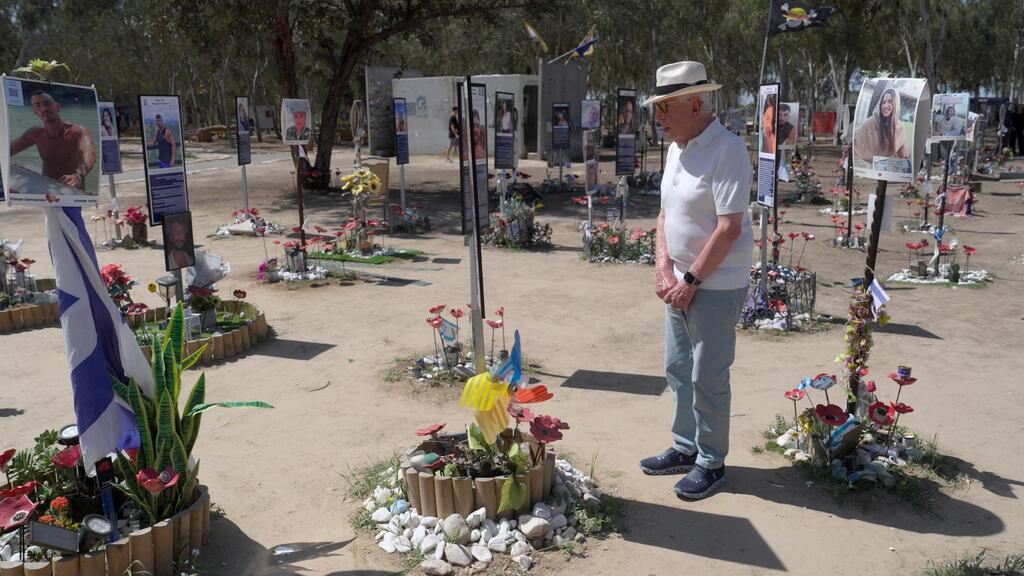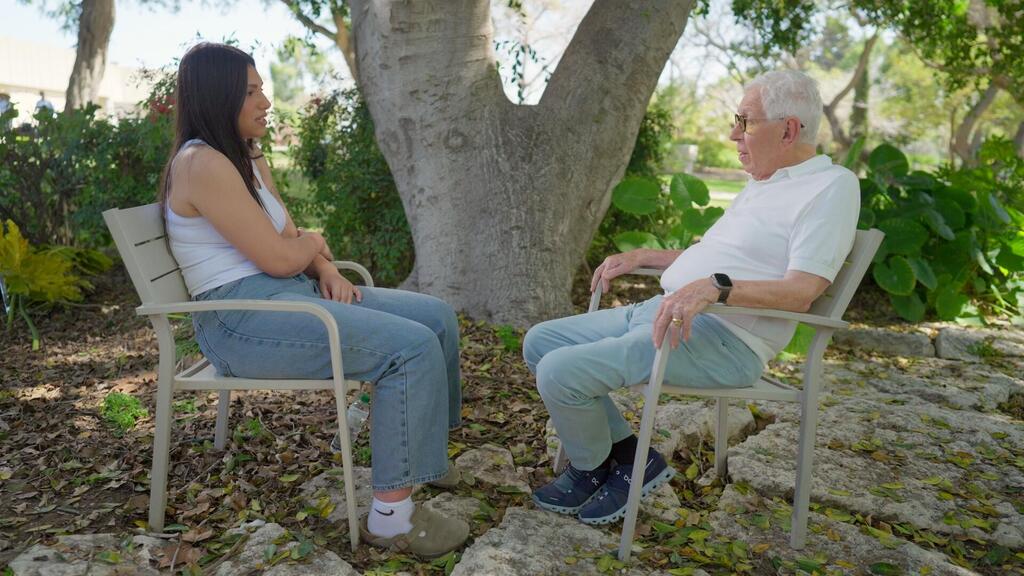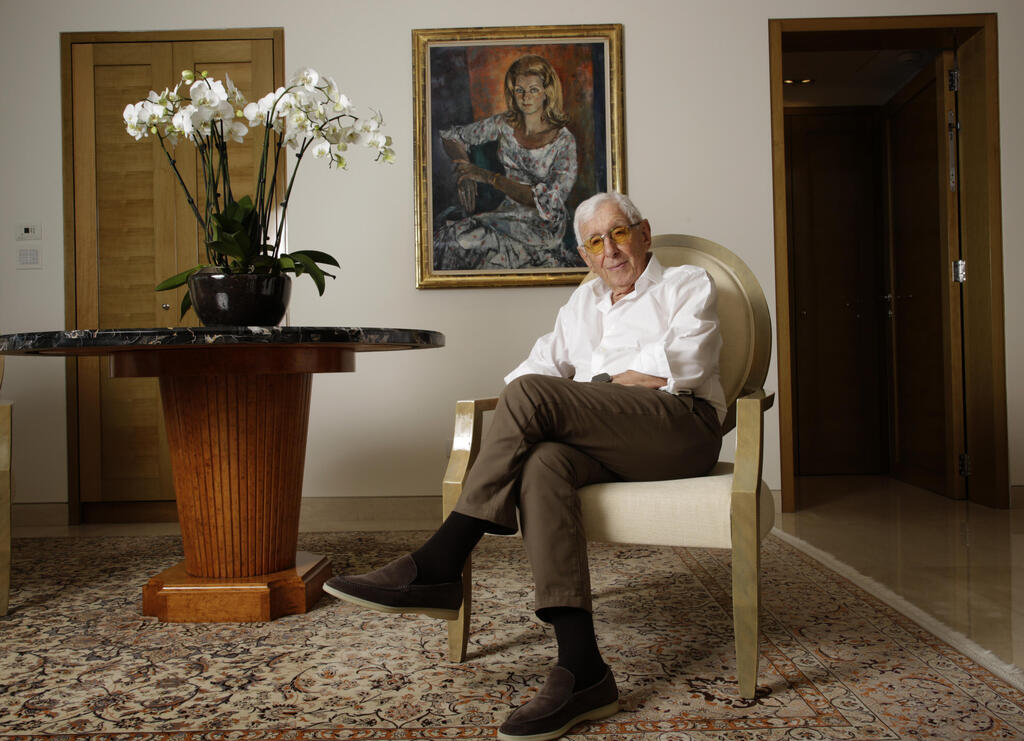“To Be a Jew”
(Kastina Productions)
Pinchas Yona Levy was born in Slovakia to Hugo and Ilona, a Jewish couple living in the small town of Fil’akovo. When the Hungarians invaded Slovakia, the family fled to Budapest. Later, as the Germans arrived in Budapest, they decided to escape once more. One morning, Hugo Levy went to the train station to see if there were any trains to the town where Ilona’s sister lived. Hours passed, but he never came back.
A few days later, a man knocked on the family’s door. He said he was a guard at a camp near Budapest where Jews were being held. He brought a letter from Hugo, asking for clothes, food – and specifically requesting his tallis and tefillin. A new letter arrived every week. In the last one, Hugo wrote that it seemed they would be released soon and return home. The family rejoiced, waiting in hope. But from that day on, they never heard from him again.
Eventually, Lowy and his family were confined to the Budapest ghetto. After the war ended and Soviet forces entered Hungary, Lowy decided to immigrate to Israel. There, he served in the Golani Brigade and worked before rejoining his family, who had by then resettled in Australia. In Australia, he founded the successful Westfield shopping mall empire and built his fortune.
Hugo Levy had arrived at the Auschwitz platform and was ordered by German soldiers to throw his tallis and tefillin to the ground. He refused. Three times a soldier threw the bundle down, and three times Hugo picked it up. After the third time, the soldier beat him to death
“To Be a Jew”
(Kastina Productions)
“It still hurts,” Lowy says in an interview with Ynet from his home in Tel Aviv. “Look at me – I lost my father. It hurts almost every single day, even though it happened more than 75 years ago. Now we know he gave his life because he couldn’t hand over his tallis and tefillin.”
“My mother was also a devout Jew. In 1944, even in hiding, she would light Shabbat candles almost every week. I said to her, ‘What are you doing? If anyone sees us, we’ll be killed.’ And she said, ‘As long as I’m able to light the Shabbat candle, I will. Danger or no danger.’ My father was like that. My mother was like that. And I’m their son. So how could I be any different? I’ve missed him all my life. If he had given in, maybe he would have survived. But he didn’t.”
Wouldn’t you have preferred things to turn out differently?
“It’s not about preference – it’s about Jewish faith. For him, at that time, there was no other choice. Maybe he wouldn’t have done it an hour earlier or later – I don’t know how people act when they’re in danger, when terrible things happen. That’s how he felt, and that’s what he did.”
As a child, losing your father over something like that – didn’t it make you resent Judaism? Why did he have to sacrifice himself for two objects?
“That question never even came up. Many people go off to war knowing they might die. They go because they believe they must defend their country. They don’t ask questions –they just go. And if they have to die, they die. It’s not a matter of choosing. There’s only one path.”
So in your view, he had no choice.
“No choice at all. He couldn’t live without his tallis and tefillin. I’m sure other devout men could – who wouldn’t have done what he did. That doesn’t make them bad people. They acted according to what they could bear. But I know my father was a good man, a good Jew. He prayed every day, laid tefillin, and never ate non-kosher food. He was observant, though not ultra-religious. He didn’t have a beard. He loved his family. My parents were so good to each other. And then – he was just gone. He gave his life for his Judaism.”
5 View gallery


"‘love’ isn’t the right word for a Holocaust film". From To Be a Jew
(Photo: Kastina Communications)
“I love Holocaust films – ‘love’ isn’t the right word. I watch many of them, not all. I think about them deeply, and I feel the pain every Jew feels when watching such things.”
What does watching them give you?
“It’s not about filling a need. This is my story. I believe the current generation, and those to come, must know and see what happened to the Jewish people during the Holocaust. Have we forgotten the destruction of the Temple? We haven’t. This, too, must be remembered.”
As the number of Holocaust survivors dwindles, the responsibility to preserve memory through documentation grows. Do you think these films capture what truly happened?
“Some do. Some don’t. But the next generations need to understand that the State of Israel exists. I hope they never do to us what was done back then. What happened two years ago was a different war, but also a terrible, painful one. And perhaps because it happened in the present time, it hurts even more. We don’t deserve it. That much is clear. But the world – or parts of it – hates us at the core. They feed on antisemitism. It happens again and again – this hatred – and it can’t be explained. We want nothing from them. So why do they hate us?”
“To Be a Jew”
(Kastina Productions)
How does your Judaism express itself today?
“I know I inherited my love for Judaism from my parents. Even when they didn’t speak it, they lived it. I’m not deeply religious, but it’s the essence of my soul.”
You know, one of the fiercest debates in Israel is about who is considered a Jew if he’s not religious. What’s your take?
“A Jew is a Jew because they were born a Jew. Whether they’re religious or not – that’s a personal choice. To me, being Jewish means being a good citizen of the State of Israel. That’s the most important thing. We must believe in the Land of Israel and do everything we can to keep our land and our country strong – to defend it when needed, and to love it when we can. I hope we learn to do both.”
That’s a beautiful connection – Judaism and the Land of Israel, as a form of belonging beyond religious observance.
“That’s how I live.”
Frank Lowy’s life story – from the time he disguised himself as a courier to obtain a Swiss passport for himself and his mother and save their lives, to how he transformed a small Jewish deli into a shopping mall empire, to fulfilling a lifelong dream at 86 and immigrating to Israel, and finally, the impact of October 7, when his relatives were murdered in Kibbutz Be’eri – is told in the documentary “To Be a Jew.”
How did you view Israel from Australia over the years?
“Both positively and with concern. It’s not easy to have a country like ours in this part of the world. Our neighbors hate us, and to live in the face of such hatred, we must be strong. The State of Israel needs strength in every sense – spiritual, military, economic, and diplomatic. Without that, we won't survive. And considering the circumstances, we're doing quite well.”
Has your experience of Israel changed since returning as a citizen?
“As an Israeli citizen, I worry deeply. We’re not a united people right now. We’re fighting among ourselves, and that’s a terrible thing. We don’t need to love each other, but a right-winger shouldn’t hate a left-winger – and vice versa. Everyone is entitled to their opinion, but that shouldn’t be a matter of life and death – it's just an opinion. Sometimes the government is from one party – I hope we’ll see another party lead in the future. I might not agree with you, but that doesn’t mean I need to hate you.”
Is this the Israel you imagined when you served in the Golani Brigade?
“When I was in Golani, those problems didn’t exist. We didn’t have time to argue – only to fight, and if needed, to die. Many of my friends died beside me. One of them took a bullet to the head. That was eighty years ago, and I still go to visit his grave in Haifa. I stand there and think about my life – how far I’ve come. I have a wonderful family. My wife loved me deeply. I succeeded in business. I built houses and malls – I kept building and building. And all that time, he has been lying in his grave.
“It’s thanks to him, and thousands like him, that we’ve been able to build. We should remember that when we’re at each other’s throats. We need to remember that so many boys and girls went to war and died. They gave their lives so we could have a country to live in. We owe the State of Israel to their deaths. Some people believe in life after death – that’s good. But for those who don’t, let them at least believe in the meaning behind their sacrifice.”
“To Be a Jew”
(Kastina Productions)
What do you think went wrong along the way?
“War. The ultimate goal should be peace between us and our neighbors. It won’t happen in my lifetime, that’s certain. Maybe in yours. But we must keep trying. Always. We have to find a way. I don’t believe it’ll happen in the next few years. But maybe someday–maybe in messianic times.”
After the war, the Levy family returned to their hometown, where the Jewish community had once numbered around 200. Only 35 remained. Frank, then Pinchas, and his cousin were the only children among them. On October 7, 2023, his cousin’s grandchildren, 12-year-old twins Yanai and Liel Hetzroni, were murdered.
“The next day, I got on a plane and came back to Israel. I couldn’t stay in New York when something like this was happening to our country, not when I had the option of getting on a plane and returning. I too asked myself why I came. I didn’t have an answer. But I had no hesitation. I’ve always known what I want. And in that moment, I wanted to come home. Immediately. Not wait a week. Not even a day. Not to see if it was safe. And I wasn’t the only one. I know of others who did the same. Because we truly felt it – this was another Holocaust. Or something that came heartbreakingly close.”
During the filming, you met people living in the Gaza Envelope and soldiers serving in the Golani Brigade.
“Yes. I spoke with the soldiers. I saw the fire in their eyes – they reminded me of us. They’re willing to die to protect this country. They don’t want to die, and we didn’t either. But they’re ready to do what they must. Some of them had only recently enlisted. I was deeply impressed. And the people living there – the moshavniks – are just as committed to defending the country.”
Do you still have a good memory?
“Thank God, yes. And I also have good memories. My wife Shirley passed away a few years ago. She was deeply Zionist and she loved me dearly. She gave me three sons, and we were married for 66 years. We met in Sydney on the eve of Hanukkah and fell in love at a party. She passed away on the same date – 66 years later – on Hanukkah eve. I had three brothers and a sister. They’ve all passed too. I had a family. Now I’m alone. It’s not easy.”
Do you think about death?
“That? No. I don’t think about it. It’s not good to dwell on. It’ll come when it wants to come – and it won’t ask me.”
Were you with your wife when she passed?
“Yes. I held her hands. Our sons stood by her bedside with me. We were all there. I held her hand, and when I felt her body grow cold, I whispered, ‘Go to sleep, my darling.’ And she went. They say only the righteous pass that way. And she was righteous.”







